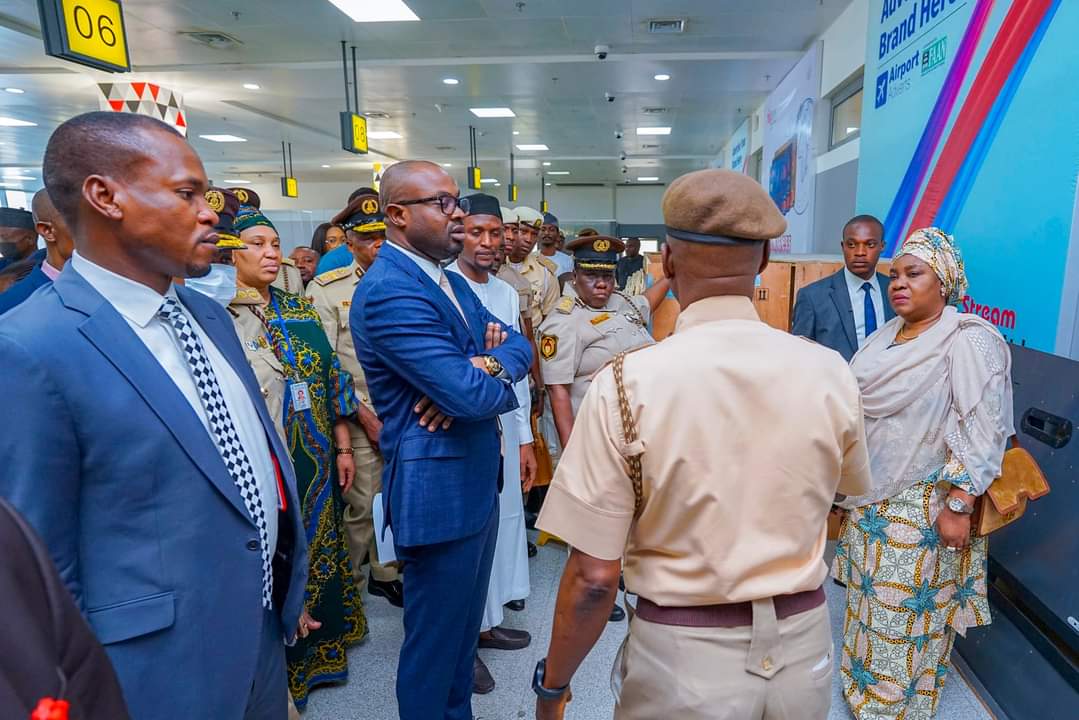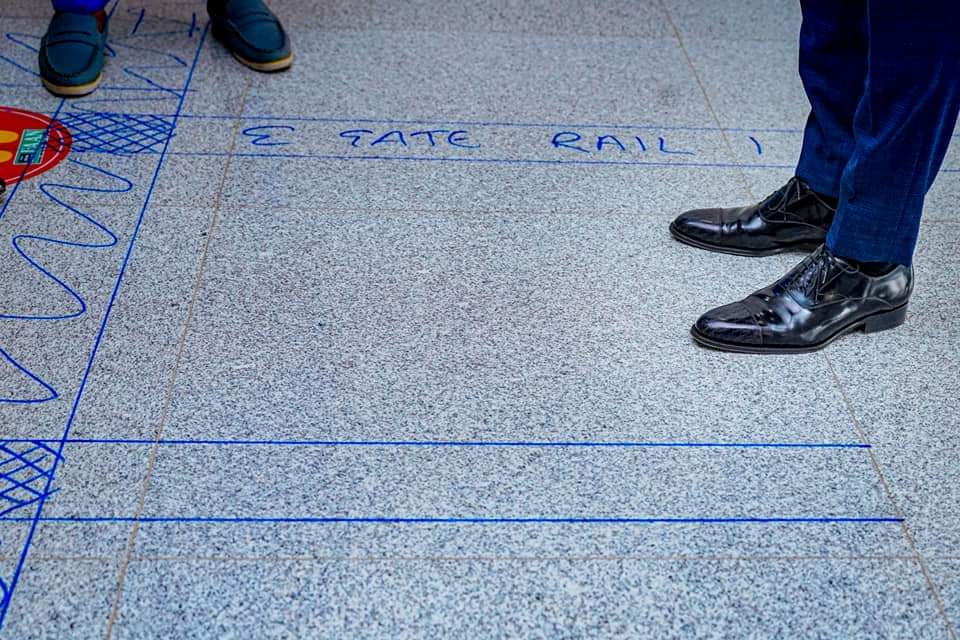As part of a comprehensive strategy to bolster internal security and streamline the arrival experience for Nigerians entering the country, the Minister of Interior, Hon. Dr. Olubunmi Tunji-Ojo, on Monday 19th February 2024, led a delegation from the Ministry to inspect the ongoing installation of E-verification gates at the Nnamdi Azikiwe International Airport in Abuja.
These state-of-the-art E-verification gates are a major component of the E-Immigration project, aimed at modernizing and optimising immigration processes across Nigeria’s airports.
Notably, four out of the planned 10 gates have already been installed at the Abuja airport. It is expected that the remaining six gates will be operational before the end of the month.
What Are E-Gates
E-gates, also known as electronic gates, are automated passport control systems that use biometric technology to authenticate the identity of passengers.
These gates scan the passport and take a photo of the passenger’s face, which is then compared to the digital image stored in the passport’s microchip. If the information matches, the gate opens and the passenger is allowed to proceed.
E-gates are often used to speed up the passport control process, particularly for passengers who are eligible for fast-track services or have biometric passports.
Setting a new standard for gate pass in Nigeria
Expressing satisfaction with the progress made thus far, Dr. Tunji-Ojo emphasized the crucial role of these E-verification gates in reducing waiting times for arriving passengers.
“With an impressive clearance time of just 30 seconds per individual, the gates are set to establish a new standard for efficiency in airport processing, comparable to global benchmarks,” the Minister said.
Benefits
The transformative impact of this investment is that, it will significantly enhance national security by providing an additional layer of scrutiny for inbound travelers.
Through advanced biometric scanning and automated flagging systems, the gates will swiftly identify individuals of interest or those on watchlists, bolstering the efforts of the Nigeria Immigration Service (NIS) to safeguard the nation’s borders.
During the inspection, Dr. Tunji-Ojo also assessed the progress of construction and installation work at the Command-and-Control Centre and border control data center, both housed within the NIS headquarters.
He commended the NIS for exceeding 70 per cent completion on these critical infrastructure projects, affirming the agency’s commitment to adopting cutting-edge technology for operational efficiency and security enhancement.
Enhancing Nigeria’s security
The project aims to deliver a total of 40 E-verification gates across multiple airports by the end of the first quarter. These installations will include 10 gates in Abuja, 17 in Lagos, five in Kano, and four each in Enugu and Port-Harcourt.
With these transformative initiatives, Nigeria is poised to enhance border security, streamline immigration processes, and provide travelers with a safer, more efficient travel experience







Leave a reply